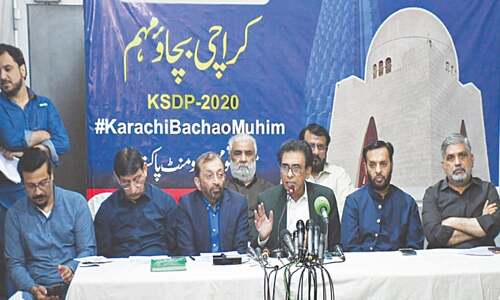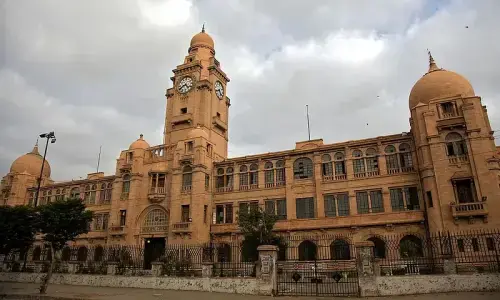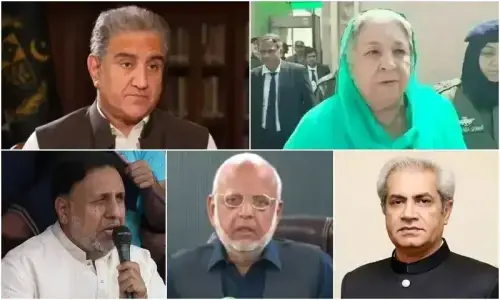KARACHI: A private screening of a documentary titled Crucible of Fire delineating the inspiring journey of the Tata family and Tata Steel’s significant role in the socioeconomic development of India had the audience completely engaged in the well-made film for a little less than an hour on Thursday evening.
Former information minister Javed Jabbar introduced the film to the audience. He pointed out a few reasons for the screening, the first of which was that he knew the director of the film Zafar Hai who’s a “fellow Hyderabad Deccania”. He called him an outstanding director who made many documentaries and one cinema film The Perfect Murder. The filmmaker was these days working on his second cinema film The Spy Princess, he said. Crucible of Fire could not be shown to the public because of the 2008 recession, which saw a decline in the steel industry, he said.
The second reason that Mr Jabbar gave was that the documentary was a tribute to the great Zoroastrian community of Pakistan and India and its sterling contribution to both countries. The community, he said, had set an example of entrepreneurship and philanthropy. It was a tribute to the Tatas too, he said. He was of the view that the film was not a conventional documentary but an innovatively told story, using both actors and actuality.
Crucible of Fire, insightfully written by Stephen Alter and narrated by Jeremy Irons, traces the business trajectory of the Tatas from the time Jamshedji Nusserwanji Tata saw a dream in 1890 to the 21st century when the company acquired Corus Group becoming a name to be reckoned with in the global business fraternity. Not many in our part of the world would know that Jamshedpur in India was named in honour of Jamshedji.
Ten or so minutes into the film, the focus shifts to Dorabji Tata who, after his father Jamshedji’s death in 1904, takes it upon himself to make his dream of building a formidable iron and steel industry come true. By virtue of enacted scenes and intercut shots of original locations, Dorabji’s effort in understanding the business by going abroad and meeting the relevant people is shown. His efforts bear fruit and he succeeds in establishing Tata Iron and Steel Company (TISCO). The company starts producing railway tracks and the demand for steel gets increased. By 1916, it is told, the company is booming.
However, after World War I, things begin to look down, as the ups are accompanied by the downs, so much so that the company faces bankruptcy. It is also the time of the Russian Revolution which “changed the way workers viewed management”. Dorabji shows resoluteness under adverse circumstances and manages to keep things intact.
After Dorabji’s death in 1932, JRD Tata holds the reins of the enterprise and things become so good that there comes an occasion when Nehru exclaims “India needs 500 more Jamshedpurs” — Jamshedpur being a bright example of industrialisation. With the help of interviews of those working with the Tata group, including Ratan Tata’s, the social responsibilities of the company are also highlighted. When in 1977 the government of India tries to nationalise the company it is the workers who stand up in protest. The ‘90s sees another period of tumult, but the resolve of the group manages to steady the ship. In one of the concluding sequences, a man is seen playing a Shakespearean character, saying the lines, “And we must take the current when it serves/Or lose our ventures.”
After the screening of the film, distinguished entrepreneur Byram D Avari made the concluding remarks. He said today the Tatas were not just known by Tata Steel anymore; they had gone into many other things (watches, IT consultancy, cars, etc). In India, Tata was a brand name, he said, and shed light on the fact that in Jamshedpur the company was providing full free medical facility and food to the people.
Published in Dawn, November 13th, 2015
On a mobile phone? Get the Dawn Mobile App: Apple Store | Google Play


































